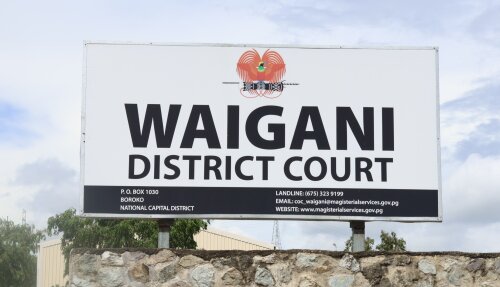Best Divorce & Separation Lawyers in Port Moresby
Share your needs with us, get contacted by law firms.
Free. Takes 2 min.
Free Guide to Hiring a Family Lawyer
List of the best lawyers in Port Moresby, Papua New Guinea
About Divorce & Separation Law in Port Moresby, Papua New Guinea
Divorce and separation in Port Moresby, Papua New Guinea are governed by the Family Protection Act and the Marriage Act. These laws outline the legal processes and procedures involved in ending a marriage or partnership. It is important to understand the local laws and seek professional legal advice to navigate through this often complex process.
Why You May Need a Lawyer
While it is not mandatory to hire a lawyer for divorce and separation proceedings, having legal representation can be highly beneficial. A lawyer can provide valuable guidance and support, especially in situations such as:
- Disagreements over child custody, visitation, or support
- Division of property, assets, and debts
- Allegations of domestic violence or abuse
- Complex financial situations
- Challenges in negotiating a fair settlement
Local Laws Overview
Port Moresby follows the laws of Papua New Guinea regarding divorce and separation. Here are some key aspects of the local laws:
- Grounds for divorce: The Family Protection Act recognizes several grounds for divorce, including adultery, cruelty, desertion, and irretrievable breakdown of the marriage.
- Property division: Papua New Guinea operates under a system of equitable distribution, where assets and debts accumulated during the marriage are divided fairly but not necessarily equally.
- Child custody: The court determines child custody and visitation arrangements based on the best interests of the child. Both parents are encouraged to maintain a relationship with the child, unless it is deemed detrimental to their well-being.
- Spousal support: In certain cases, the court may order spousal support or maintenance payments to be made by one party to the other.
Frequently Asked Questions
1. How long does it take to get a divorce in Port Moresby, Papua New Guinea?
The duration of the divorce process can vary depending on individual circumstances. Typically, it takes several months to finalize a divorce, but complex cases may take longer.
2. Do I need to be separated before filing for divorce?
Yes, the law requires a period of separation before filing for divorce. This period is usually at least 12 months, during which the couple lives separately and apart.
3. Can I get a divorce if my spouse does not agree?
Yes, it is possible to proceed with a divorce even if your spouse does not agree. However, you may encounter additional challenges and legal processes in such cases.
4. What factors are considered in child custody decisions?
Child custody decisions prioritize the best interests of the child. Factors such as the child's age, health, relationship with each parent, and their ability to provide a safe and nurturing environment are taken into account.
5. Can I change the terms of a divorce settlement?
Modifying the terms of a divorce settlement can be challenging. It generally requires a significant change in circumstances and the approval of the court. Consulting with a lawyer is advisable in such situations.
Additional Resources
For further information and assistance regarding divorce and separation in Port Moresby, Papua New Guinea, you may find the following resources helpful:
- Port Moresby Family Court
- Papua New Guinea Law Society
- Papua New Guinea Department of Justice and Attorney General
Next Steps
If you are seeking legal assistance in a divorce or separation matter in Port Moresby, Papua New Guinea, it is recommended to take the following steps:
- Research and identify reputable lawyers or law firms specializing in family law.
- Schedule consultations with potential lawyers to discuss your situation and assess their expertise.
- Select a lawyer whom you feel comfortable with and who understands your needs.
- Work closely with your chosen lawyer to gather necessary documentation and information for your case.
- Follow the legal advice provided by your lawyer and actively engage in the divorce or separation proceedings.
Lawzana helps you find the best lawyers and law firms in Port Moresby through a curated and pre-screened list of qualified legal professionals. Our platform offers rankings and detailed profiles of attorneys and law firms, allowing you to compare based on practice areas, including Divorce & Separation, experience, and client feedback.
Each profile includes a description of the firm's areas of practice, client reviews, team members and partners, year of establishment, spoken languages, office locations, contact information, social media presence, and any published articles or resources. Most firms on our platform speak English and are experienced in both local and international legal matters.
Get a quote from top-rated law firms in Port Moresby, Papua New Guinea — quickly, securely, and without unnecessary hassle.
Disclaimer:
The information provided on this page is for general informational purposes only and does not constitute legal advice. While we strive to ensure the accuracy and relevance of the content, legal information may change over time, and interpretations of the law can vary. You should always consult with a qualified legal professional for advice specific to your situation.
We disclaim all liability for actions taken or not taken based on the content of this page. If you believe any information is incorrect or outdated, please contact us, and we will review and update it where appropriate.










